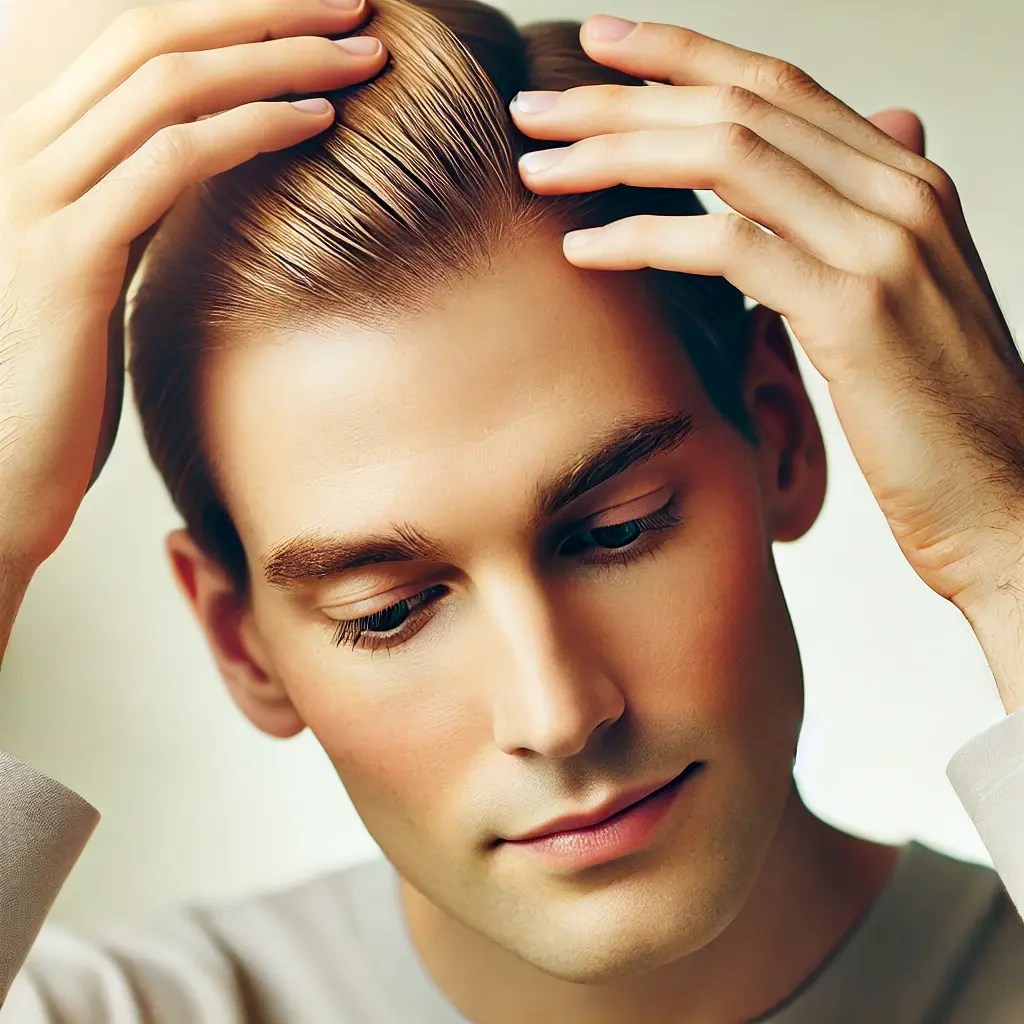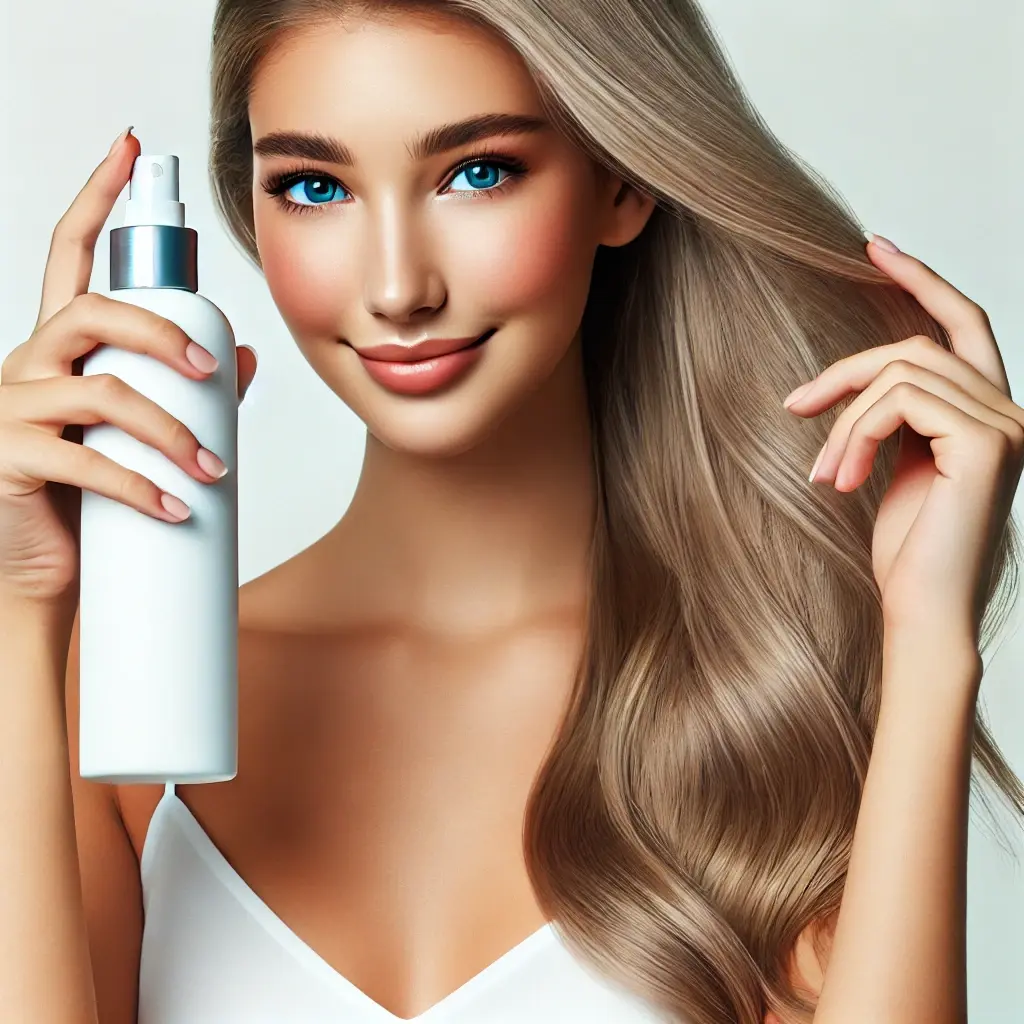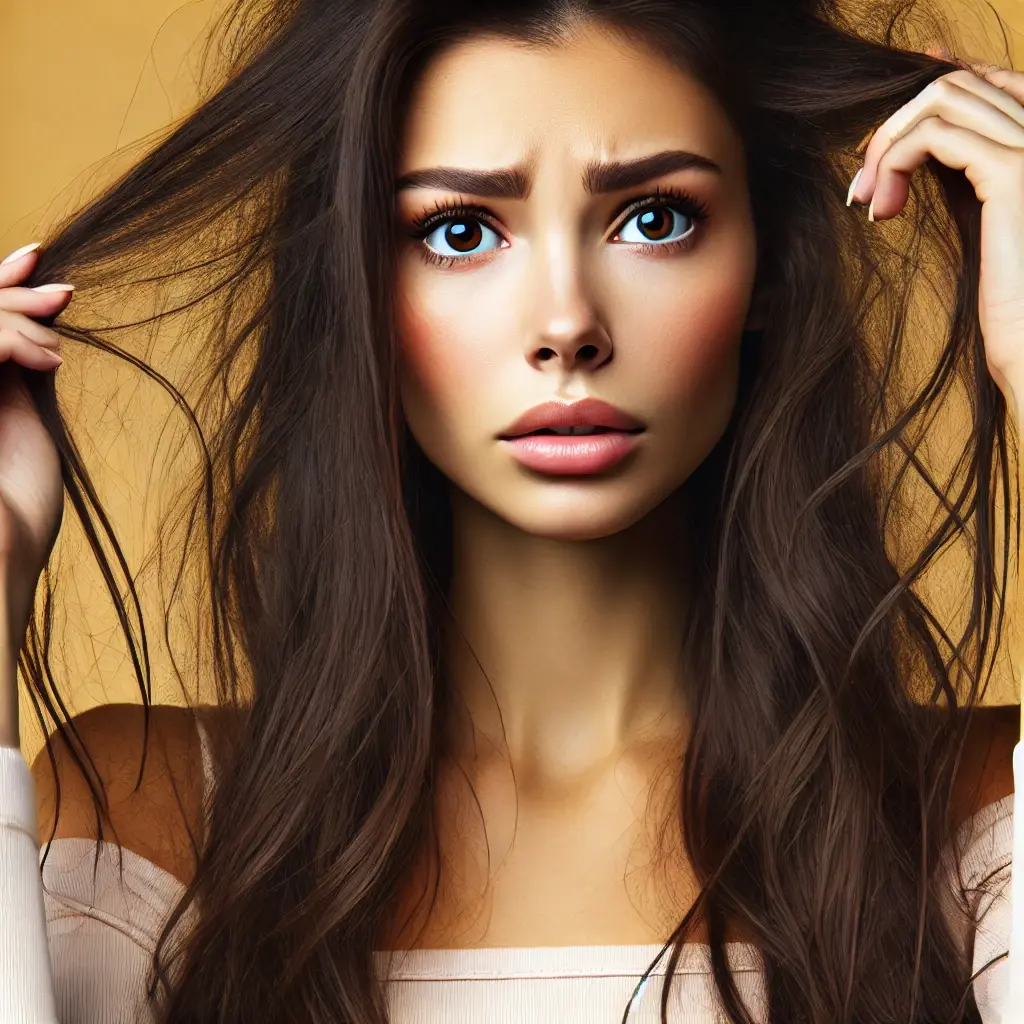Ever feel like your hair just can’t catch a break? You wash it in the morning, it looks perfect for a few glorious hours, and then—boom!—by lunchtime, it’s already starting to look greasy, heavy, and a little flat. If you find yourself battling with “my hair get greasy fast,” you’re definitely not alone. So many of us struggle to keep that just-washed freshness, only to see it vanish within a day.
So, why does this happen? Well, it’s not all your fault! Our scalps naturally produce oil (or sebum), which is actually great for keeping our hair nourished. But when there’s too much of it, or when certain habits or products add to the problem, it can make our hair look and feel greasy way too fast. Maybe it’s because of over-washing, using heavy products, or even our hair type and lifestyle. Whatever the reason, there’s hope!
In this guide, we’ll dive into the most effective ingredients and methods for keeping that oil at bay when your hair gets greasy quickly. From natural remedies to smart product choices, we’ve got the tips and tricks you need to help your hair stay fresh, light, and grease-free for longer. Let’s say goodbye to the mid-day oil slick and hello to hair that feels amazing all day!
Table of contents
Why Does My Hair Get Greasy Fast?
You wash your hair, and it looks great for about a day… but then it starts looking oily, flat, and, well, a bit greasy. It’s frustrating, right? If you’re wondering why your hair seems to get greasy almost instantly, you’re definitely not alone. Let’s break down some common reasons why hair tends to get greasy so quickly and what you can do to keep it looking fresh longer.
Your Scalp’s Natural Oils
Our scalps produce sebum, a natural oil that’s actually super helpful for keeping our hair moisturized and healthy. But sometimes, our scalp can go overboard with oil production, leading to hair that feels greasy fast. Think of sebum as your hair’s natural conditioner—it’s great in moderation, but too much can weigh your hair down.
Over-Washing Can Backfire
You might think that washing your hair every day will keep it clean and oil-free, but this can actually make things worse! When you wash your hair too often, you strip away those natural oils, which causes your scalp to go into overdrive trying to replace them. The result? Even more oil production, which means greasier hair.
Using the Wrong Products
Not all hair products are created equal, especially when it comes to managing oil. Heavy, moisturizing shampoos and conditioners, or products designed for dry hair, can leave residue on your scalp that weighs hair down and makes it feel greasy faster. If you have an oily scalp, look for lightweight, clarifying shampoos that won’t add unnecessary buildup.
Hormones and Stress
Hormones play a big role in how much oil your scalp produces. If you’re dealing with hormonal changes (like during puberty, pregnancy, or even just a particularly stressful time), your body might produce more oil than usual. Stress, too, can throw off your body’s balance, sometimes leading to a greasier scalp.
Touching Your Hair Too Much
It’s tempting to run your fingers through your hair, especially if it’s soft and clean, but touching your hair transfers oils from your hands to your strands. The more you play with or brush your hair, the quicker it can get greasy.
Using Heat Styling Tools
Heat styling tools, like straighteners or curling irons, might make your hair look great, but they can also stimulate more oil production on the scalp. Plus, the heat can draw oils down your hair shaft, making your hair look greasier overall.
Now that we know why my hair get greasy fast, let’s explore some natural ingredients and expert-approved tips that can keep that oil under control.

Key Ingredients to Combat Greasy Hair
Keeping your hair fresh and oil-free doesn’t have to be a constant struggle, even if you feel like my hair get greasy fast! Some simple, natural ingredients can make a big difference in controlling that pesky greasiness. Here’s a closer look at some powerhouse ingredients that help tackle oily hair and how to use them to get the best results.
Tea Tree Oil
If you’re struggling with an oily scalp, tea tree oil could be an effective solution. Its well-documented antibacterial and antifungal properties help control excess oil while keeping your scalp clean. Unlike harsher cleansers that strip your hair of all its natural oils, tea tree oil helps balance your scalp’s oil production without compromising the moisture your hair needs to stay healthy and shiny.
Dr. Zeichner highlights tea tree oil as an effective natural remedy for those with oily scalps, thanks to its antimicrobial and antifungal properties. “Tea tree oil helps clear away excess oil and keeps the scalp’s natural microbiome in balance,” he says. Dr. Zeichner suggests adding a few drops of tea tree oil to your regular shampoo or opting for a shampoo that includes it as an ingredient, as it can effectively control oil without causing dryness.
Potential Side Effects
Because tea tree oil is quite potent, it may cause irritation or sensitivity, especially for those with delicate skin. To keep it safe and gentle, always dilute tea tree oil with a carrier oil, such as coconut or jojoba oil.
Application Tips
For best results, add a few drops of tea tree oil to your regular shampoo or blend it with a carrier oil and massage it gently into your scalp. Using it once or twice a week is generally enough to keep oil under control and maintain scalp health without over-drying.
Apple Cider Vinegar: The Natural Solution for Greasy Hair
Apple cider vinegar (ACV) has long been known for its health benefits, but it’s also highly effective in tackling greasy hair. Its natural acidity helps balance the scalp’s pH, which is essential for controlling excess oil production. A healthy pH level can help prevent the overproduction of sebum that often leads to that unwanted, weighed-down feeling. ACV also works as a natural clarifier, removing product buildup that can leave hair looking dull and greasy.
Potential Side Effects
Because of its acidic nature, ACV can be drying if used too often. To keep your scalp healthy, it’s best to limit its use to once a week. Overuse can lead to dryness or even irritation, so moderation is key.
Application Tips
After shampooing, mix one part ACV with three parts water, then pour the mixture over your scalp. Massage gently and allow it to sit for a minute or two before rinsing thoroughly. This method helps ensure there’s no lingering vinegar smell while leaving your scalp feeling refreshed and your hair looking cleaner for longer.
Aloe Vera
Aloe vera is widely known for its calming and nourishing benefits, making it an excellent choice for managing oily hair. Its natural properties help clear away excess oil without disturbing your scalp’s natural balance, offering a gentle solution that hydrates without leaving your hair greasy. The enzymes in aloe vera help break down dead skin cells, promoting a healthier scalp environment, which is essential for managing oil production effectively.
Potential Side Effects
Aloe vera is generally considered safe for most skin types, but as with any new ingredient, a patch test is recommended to rule out any mild allergic reactions.
Application Tips
For best results, use fresh aloe vera gel. Massage it directly onto your scalp, leave it on for about 10–15 minutes, then rinse thoroughly with lukewarm water. This once-weekly treatment helps maintain a balanced scalp, effectively keeping oiliness at bay without drying out your hair.

Rosemary: A Natural Solution for Greasy Hair
Beyond its use in the kitchen, rosemary is a powerful, natural remedy for managing oily hair. With properties that stimulate blood circulation, rosemary oil helps balance the scalp’s oil production, keeping hair fresh and light. The herb is rich in antioxidants, which support a healthier scalp environment by reducing potential buildup and promoting scalp health, which can prevent excessive oiliness over time.
Potential Side Effects
While rosemary oil is safe for most people, it is a strong essential oil and should always be diluted before use. Some may experience mild sensitivity or irritation, so patch testing is recommended before full application.
Application Tips
To use rosemary oil effectively, dilute a few drops in a carrier oil like coconut or olive oil, then gently massage it into your scalp. Let it sit for about 15–20 minutes to allow the nutrients to penetrate, then rinse thoroughly. Alternatively, add a few drops to your regular shampoo for a gentle, oil-balancing boost every wash.
Mint Essential Oil for Managing Scalp Oiliness
Mint essential oil, especially peppermint oil, is a popular choice for tackling scalp oiliness due to its natural astringent and cooling properties. Its invigorating scent not only freshens the scalp but also stimulates circulation, which can support scalp health. Additionally, peppermint oil’s mild astringent effects help regulate oil production on the scalp, keeping hair looking clean and refreshed for longer.
Potential Side Effects
Peppermint oil can be potent, especially for sensitive skin types. It’s crucial to dilute it with a carrier oil (like coconut or jojoba oil) before applying it directly to the scalp to minimize any chance of irritation. Doing a patch test before full application is always recommended to ensure your skin tolerates it well.
Application Tips
To make the most of mint essential oil’s benefits, add a few drops to a carrier oil and massage it into your scalp. Let it sit for about 10 minutes, then rinse thoroughly with lukewarm water. For a gentler approach, you can add two to three drops of peppermint oil to your regular shampoo. This method provides a refreshing cleanse and can help maintain a balanced scalp environment with each wash.
Green Tea: A Natural Solution for Greasy Hair
Green tea is not just a refreshing beverage; it’s also a proven ingredient for scalp health and managing oiliness. Loaded with antioxidants, particularly catechins, green tea effectively reduces sebum production on the scalp. By lowering excess oil, green tea helps keep hair looking fresh and balanced for longer. Additionally, its anti-inflammatory properties soothe the scalp, making it an ideal choice for those with sensitive or irritated skin.
Research supports the benefits of green tea in skincare and haircare due to its potent antioxidants and tannins, which help reduce oil and protect the scalp from free radicals that can contribute to excess oil production.
Potential Side Effects
Green tea is generally safe for most people. However, it’s a good idea to perform a patch test before full application, especially if you have sensitive skin.
How to Use
Brew a strong cup of green tea and allow it to cool. After shampooing, pour it over your scalp as a rinse, let it sit for about five minutes, and then rinse with cool water. For best results, try this green tea rinse once or twice a week to maintain a balanced, less oily scalp.
Witch Hazel
Witch hazel is a gentle, plant-based astringent that’s widely recognized for its ability to reduce excess oil without over-drying the scalp. Dermatologists often recommend it as a natural alternative to harsher ingredients, making it ideal for those with sensitive skin. Witch hazel’s mild formula helps balance oil production on the scalp, reducing greasiness and keeping hair fresh.
Potential Side Effects
Witch hazel is generally considered safe and well-tolerated. However, if you have highly sensitive skin, it’s wise to perform a patch test first to check for any potential irritation.
Application Tips
To apply, soak a cotton ball in witch hazel and gently dab it onto your scalp, focusing on the roots. Start by using it a couple of times per week, and adjust based on your scalp’s response. This technique helps manage oil production, leaving your scalp feeling clean and refreshed without disrupting its natural moisture balance.
Salicylic Acid: The Skincare Staple for a Grease-Free Scalp
If you’re a skincare enthusiast, you’re likely already familiar with the benefits of salicylic acid for treating oily skin. But did you know that this powerhouse ingredient is just as effective for maintaining a healthy, balanced scalp? Salicylic acid works by gently exfoliating the scalp, removing excess oil and dead skin cells that can clog pores and lead to that dreaded greasy look. This makes it an excellent choice for those struggling with frequent oiliness and buildup.
Dr. Zeichner recommends using shampoos specifically labeled as lightweight and clarifying, especially for those with oily hair. “Look for ingredients like salicylic acid, which can gently exfoliate and reduce oil buildup without stripping the scalp.” He advises avoiding shampoos with heavy conditioning agents like silicones, as they can worsen oiliness.
Potential Side Effects
While salicylic acid can work wonders for an oily scalp, it can also be drying. It’s best for those with particularly oily scalps, and if you have sensitive skin, you’ll want to use it sparingly to avoid irritation.
Application Tips
To get the most out of salicylic acid without overdoing it, look for a quality shampoo that includes this ingredient. Use it about once a week, focusing on your scalp to keep oiliness in check and prevent buildup. This way, you’ll reap the benefits of a cleaner, fresher scalp without over-stripping essential moisture.

Hair Care Tips to Prevent Greasiness and Get Rid of Oily Hair
Dealing with hair that seems to get greasy within hours can be so frustrating! If you’re constantly thinking, My hair get greasy fast, finding the right routine to keep it clean and light might feel like a bit of a science experiment. But with some simple adjustments, you can seriously cut down on that unwanted oil. Here’s a breakdown of easy tips and tricks to help you stop greasy hair in its tracks and keep it looking fresh all day.
1. Pick the Right Shampoo for Oily Hair
First things first—get yourself a shampoo that’s made for oily or greasy hair. Look for a lightweight, clarifying shampoo. This type of shampoo is designed to clean deep and get rid of any product or oil buildup on your scalp without leaving it stripped and dry. Be careful not to overdo it, though! Use a clarifying shampoo about once a week, and for regular washing, stick to something gentle to keep from over-drying your scalp.
2. Keep Conditioner Away from Your Scalp
Conditioner is fantastic for keeping your hair soft, but too much on the roots can make things greasy fast. Try only applying conditioner to the ends of your hair, especially if you have long hair. This way, your ends get the moisture they need without adding any extra oil to your scalp.
3. Avoid Over-Washing
It’s tempting to wash greasy hair every day, but too much washing actually makes things worse! When you wash your hair frequently, you strip away natural oils, which causes your scalp to go into overdrive and produce even more oil. Instead, aim to wash every other day or even every two days. It might feel strange at first, but your scalp will adjust, and the oil production will eventually balance out.
4. Adjust Your Water Temperature
Believe it or not, the temperature of your shower water can play a big role in how oily your hair gets. Washing your hair with super hot water might feel amazing, but it actually stimulates your scalp to produce more oil. Hot water strips away natural oils, which sends your scalp into “replenish mode” and ends up making your hair greasier faster.
Instead, try washing your hair with lukewarm water to gently cleanse without triggering extra oil production. If you’re up for it, finish with a quick cool rinse at the end. The cooler water can help close your hair cuticles, making your hair smoother and adding a bit of extra shine. This small change can make a noticeable difference in how fresh your hair looks throughout the day!
5. Detox Your Scalp
Just like our skin, our scalp can benefit from a good detox every now and then! Over time, product residue, oil, and dead skin cells can build up on your scalp, weighing down your hair and making your hair greasy faster. A scalp detox helps clear away this buildup, allowing your scalp to breathe and your hair to stay fresher.
To detox your scalp, you can use a gentle exfoliating scrub specifically designed for scalps, or even DIY one with natural ingredients like sea salt, tea tree oil, and olive oil. Massage the scrub into your scalp to loosen up buildup, then rinse thoroughly with lukewarm water. Aim to do a scalp detox about once a month or as needed to keep things balanced. Not only will this keep your hair feeling cleaner, but it’ll also create a healthy environment for new hair growth!
6. Stop Touching Your Hair So Much
It’s easy to run your fingers through your hair, especially if you like to check for greasiness, but touching your hair only makes it worse. Each time you touch your hair, you’re transferring oils from your hands to your scalp, which can make it look greasy faster. Try to keep your hands off your hair as much as possible, and let it do its thing!
7. Use Dry Shampoo Between Washes
Dry shampoo is a game-changer for those in-between days when your hair needs a little refresh. It soaks up extra oil and gives your hair a cleaner, more voluminous look. Just spray (or sprinkle) it near the roots, let it sit for a couple of minutes, and then brush it through. It’s like a mini wash without the water, and it’s perfect for keeping greasiness under control without stripping your scalp.

8. Tone Down the Heat Styling
Heat styling tools like blow dryers and straighteners can cause your scalp to produce more oil, especially if you’re using high heat every day. When possible, let your hair air-dry, or at least switch to a lower heat setting on your styling tools. Reducing heat exposure can help cut down on oil production and keep your hair looking fresh longer.
9. Clean Your Brush Regularly
Your hairbrush might be sneakily adding to the greasiness of your hair! Brushes collect all sorts of things over time—oil, dead skin cells, dust, and leftover product buildup. Every time you brush, you’re transferring that gunk back onto your clean hair, which can make it look oily faster.
To avoid this, get into the habit of cleaning your brush regularly. Simply remove any hair caught in the bristles, and then wash the brush with a bit of shampoo and warm water. Give it a good rinse and let it dry completely before using it again.
10. Eat Fresh and Stay Hydrated
Did you know that your diet can impact your hair’s oiliness? Foods high in sugar and processed ingredients can contribute to oil production. Try eating more whole foods like fruits, veggies, and healthy fats, which can help balance things out. Drinking plenty of water is also key, as staying hydrated supports overall skin health, including your scalp.
With these tricks up your sleeve, you’ll be on your way to less greasy hair and more confidence. If you’re tired of saying, “my hair get greasy fast,” try experimenting with what works best for you, and give it some time—your hair will thank you for it!
Conclusion for Why Does my hair get greasy fast?
If you’re ready to put an end to that constant battle with greasy hair and the frustration of “my hair get greasy fast,” incorporating these ingredients and tips into your routine can make a real difference. Simple changes like using tea tree oil, rosemary, or a scalp detox can keep your hair looking fresh and light for longer. Remember, consistency is key—so experiment with these methods, find what works best for you, and enjoy the confidence that comes with cleaner, healthier-looking hair every day!
Call to Action
Struggling because your hair get greasy fast? Try these tips today, and don’t forget to check out more hair care articles on Beautystylemag.com! For more insights, explore expert advice from trusted sources like the verywellhealth.com and WebMD.
If you’re interested in learning more about hair care solutions, feel free to explore our other articles, like 10 Best Hair Oils for Healthy, Voluminous Hair or The Best Hair Care Products for Frizzy Hair in 2024.









